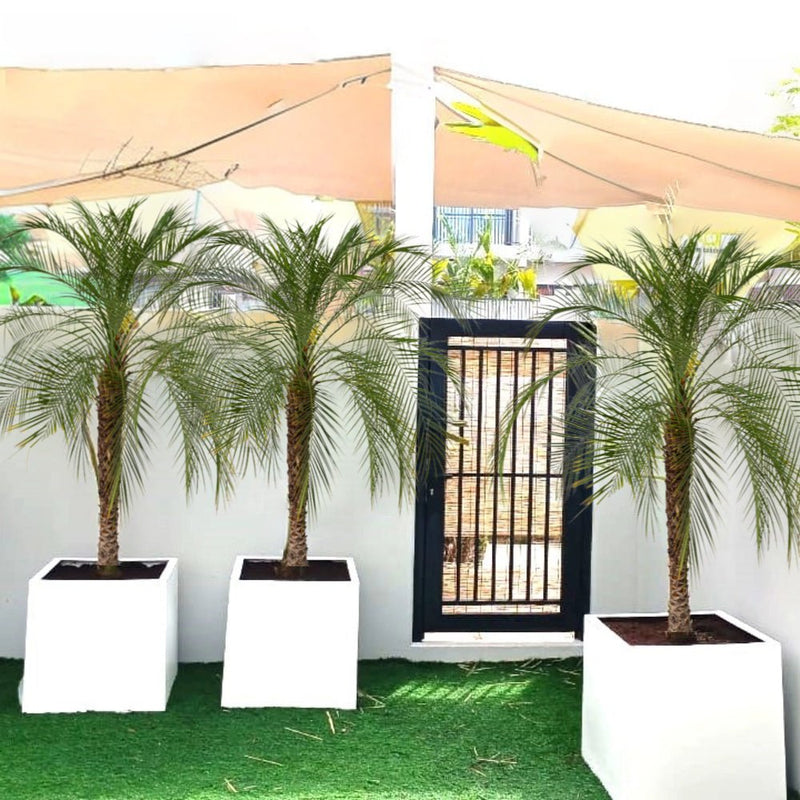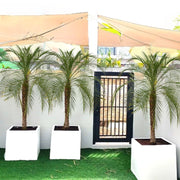Phoenix Roebelenii / Pygmy Date Palm in white Grp Pot 40x40
Free returns on all eligible orders
You have 7 days to request a return. All sale items are final sale.
The mentioned price applies to a single plant only.
Phoenix roebelenii
Pygmy Date Palm, Phoenix roebelenii, originated underneath the canopy of dense tropical forests in Africa and Asia. Phoenix roebelenii in Grp Pot helps explain why this plant does so well in the indirect light found in homes and offices.
🌴 Botanical Profile
-
Scientific Name: Phoenix roebelenii
-
Family: Arecaceae (Palm family)
-
Common Names: Pygmy Date Palm, Dwarf Date Palm, Miniature Date Palm
-
Native Range: Southern China, Laos, and Vietnam—especially along the warm, humid banks of the Mekong River.
🌿 Physical Characteristics
-
Size: Typically grows to 6–8 feet (1.8–2.4 meters) tall, making it ideal for small gardens or indoor spaces.
-
Leaves: Soft, feather-like fronds that are 2–4 feet long. They’re vibrant green and slightly arching, with small spines at the base.
-
Trunk: Slender and bumpy, marked by scars from fallen fronds. In cultivated settings, multiple trunks may be planted together for a more decorative, curving effect.
-
Flowers & Fruit:
-
Produces small yellow flowers on long stalks.
-
Female plants bear small, purple, date-like fruits. These are edible but not particularly flavorful.
-
🌱 Growth & Care
-
Light: Prefers bright, indirect sunlight. Can tolerate some direct sun but may suffer leaf burn if overexposed.
-
Watering: Likes consistently moist, well-draining soil. Moderately drought-tolerant once established.
-
Temperature: Thrives in warm climates (16°C–24°C or 60°F–75°F). Sensitive to frost.
-
Humidity: Enjoys high humidity but adapts well to indoor conditions.
-
Maintenance: Slow-growing; may take up to 5 years to fruit. Regular pruning and leaf cleaning help maintain its appearance.
🌍 Uses & Benefits
-
Ornamental Value: Popular in landscaping and interior design for its graceful form and manageable size.
-
Economic Uses: Though not widely cultivated for fruit, it has traditional uses in:
-
Rope and fiber production
-
Thermal insulation
-
Building materials
-
Medicinal applications in some cultures.
-
🐾 Pet Safety
-
While generally safe, always check with a vet or trusted plant toxicity guide if you have pets, as some palms may cause mild irritation.




